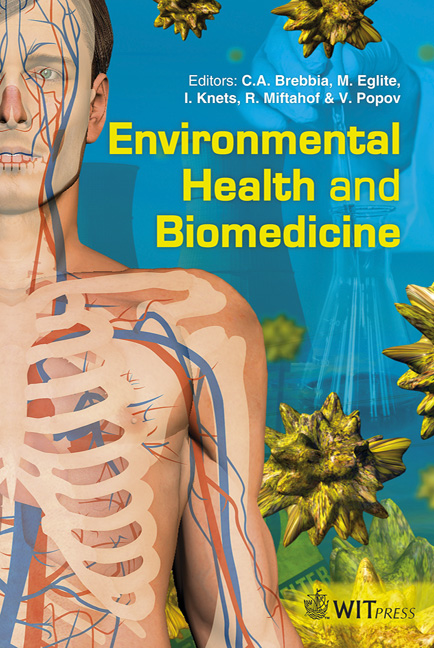Generic Mapping Of Human Activity-based Exposure Scenarios To Petroleum Hydrocarbon Contaminants In An Oil Producing Area Of The Niger Delta Region Of Nigeria
Price
Free (open access)
Transaction
Volume
15
Pages
12
Page Range
79 - 90
Published
2011
Size
5,402 kb
Paper DOI
10.2495/EHR110081
Copyright
WIT Press
Author(s)
W. J. Shittu, C. P. Nathanail & R. J. Abrahart
Abstract
Oil spills worldwide may occur during production and transportation by accident, equipment failure and error. However, the common cause in the Niger Delta region of Nigeria has been attributed to pipeline sabotage and vandalism. Over the past 50 years a total of 6,817 oil spill incidents have been recorded resulting in the discharge of more than 9 million barrels of crude oil into the environment of which over 70 per cent remains unrecovered. The negative impact of such oil spills on human health and the environment can be severe. Most of the oil spills in the region occur from pipeline discharge in or near rural communities where people survive mainly on naturally available resources, engaging daily in traditional activities like hunting, fishing, farming and gathering even at the risk of exposure to oil contaminated media. This paper identify traditional rural activities in the region and map areas vulnerable to risk of exposure to petroleum hydrocarbon contaminants, base on a relative risk ranking model for traditional activities undertaken by the people. It indicates traditional activity with the highest risk according to age/gender following an average daily exposure scenario. To achieve this, oil spill site datasets from 1985 – 2008; spatial location of 354 rural communities; several kilometres of pipeline network digitised from SPOT satellite imaging was inputted into a GIS to map community proximity to oil pipeline routes and historic spill sites. Map overlay, buffering and Boolean operations were performed to determine community vulnerability to oil spill releases using proximity to pipelines and rivers, and land use type. The map will be beneficial
Keywords
risk, contaminants, exposure, pathway, oil spill, pollution





